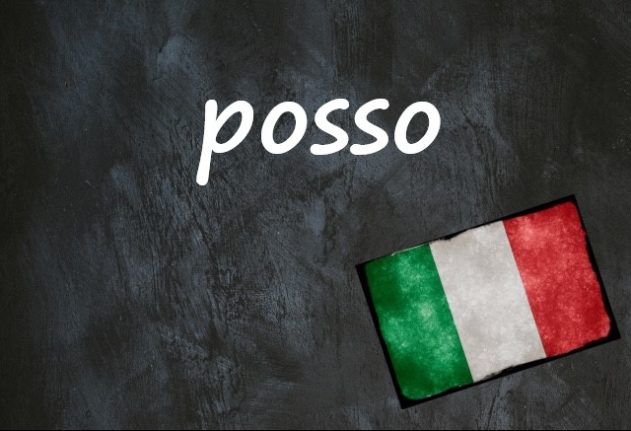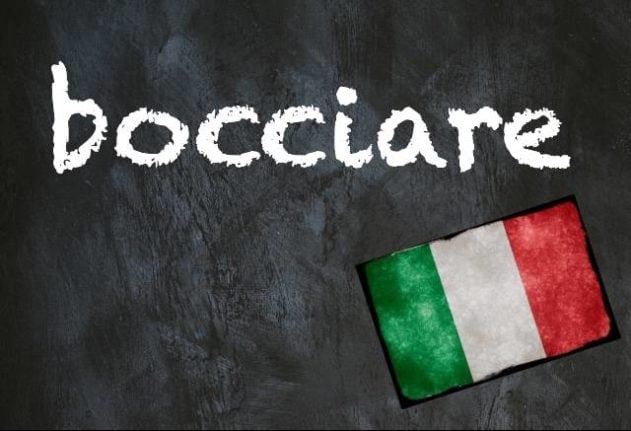Today’s word is just one form of a fundamental Italian verb: potere, ‘to be able to’ or ‘can’.
You’ll need to master potere in all its forms and tenses, but let’s concentrate for now on the first-person present tense: posso, ‘I can’.
Posso parlare tre lingue.
I can speak three languages.
Non posso venire.
I can’t come.
As well as indicating what you are and aren’t capable of doing, posso can be a question: ‘Can I?’ or more politely, ‘May I?’
Naturally, you can specify what you’re asking permission to do…
Posso entrare?
Can I come in?
Posso parlarti?
May I have a word with you?
… or you can just leave the whole thing up to context.
You might hear a waiter ask, simply, “Posso?” when he wants to know if he can clear your plate, and it’s all you need to say as you point to a seat on the train if you want to check that you’re free to sit down.
In this respect it’s a handy complement to permesso, another polite term for asking for permission.
The two are similar, but while permesso tends to have a more limited application – chiefly, when you’re checking it’s ok to enter a space or move around it – posso clears you to do things as well. Such as help yourself to that second serving of pasta.
See our complete Word of the Day archive here.
Do you have a favourite Italian word you’d like us to feature? If so, please email us with your suggestion.




 Please whitelist us to continue reading.
Please whitelist us to continue reading.
Member comments